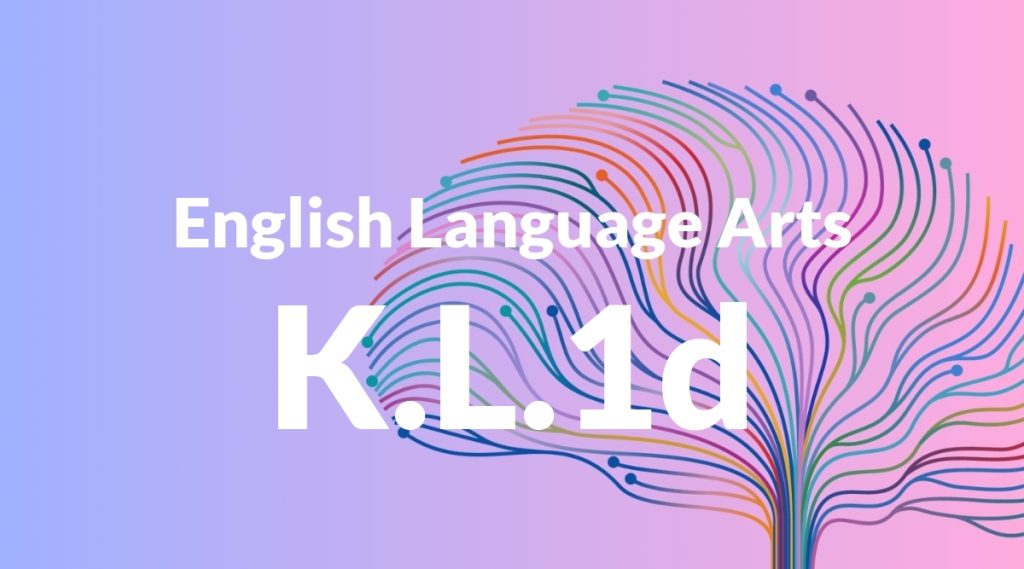Standard: K.L.1d – Understand and use question words (interrogatives) (e.g., who, what, where, when, why, how).
Grade level: Kindergarten
Subject: English Language Arts
Domain: Language
Teacher Overview
This standard focuses on helping kindergarten students understand and use question words, or interrogatives, such as who, what, where, when, why, and how. Mastering these words is crucial as it enables students to ask questions, seek information, and engage in conversations, laying the foundation for effective communication and critical thinking. Students should have a basic understanding of vocabulary and sentence structure, including the use of simple nouns and verbs, before tackling this standard.
After mastering this standard, students will be able to form more complex questions and understand the context in which different question words are used, enhancing their communication and comprehension skills.
Common Misconception 1
A common misconception is that students may confuse different question words, such as using ‘who’ when they should use ‘where’. This confusion can arise from a lack of understanding of the specific context each question word addresses.
Intervention 1
To remediate this misconception, teachers can use visual aids and repetitive practice. For example, using pictures and scenarios to illustrate the context of each question word can help students make the correct associations.
Common Misconception 2
Another misconception is that students might think all questions can be answered with a simple ‘yes’ or ‘no’. This can limit their ability to seek detailed information and understand the purpose of different question words.
Intervention 2
Teachers can address this by encouraging students to provide more detailed answers and practicing with open-ended questions. Role-playing and interactive activities can also help students understand the need for more comprehensive responses.
Prerequisite Knowledge
Students should have basic vocabulary and sentence structure understanding, including recognizing and using simple nouns and verbs.
Subsequent Knowledge
After mastering this standard, students will be able to form more complex questions and understand the context in which different question words are used, enhancing their communication and comprehension skills.
Instructional Activities
- Role-playing different scenarios where students have to ask and answer questions using interrogatives.
- Using picture cards to match question words with appropriate answers.
- Interactive storytelling where students ask questions about the story using different question words.
- Creating a question word wall in the classroom with examples and visuals.
- Playing question word bingo to reinforce understanding.




